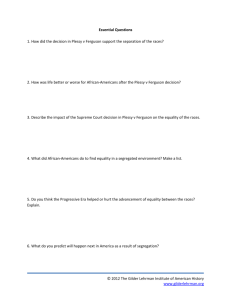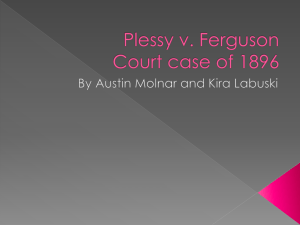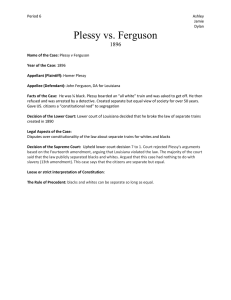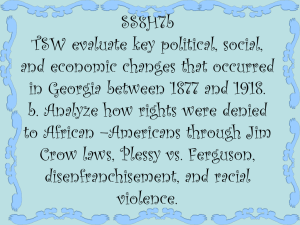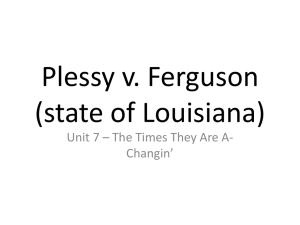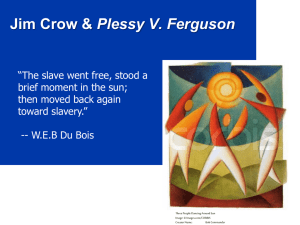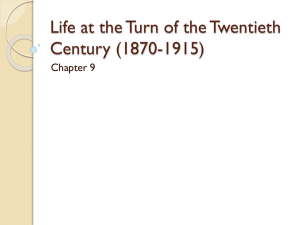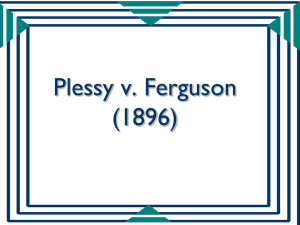Brown v. Board of Education 60th Anniversary
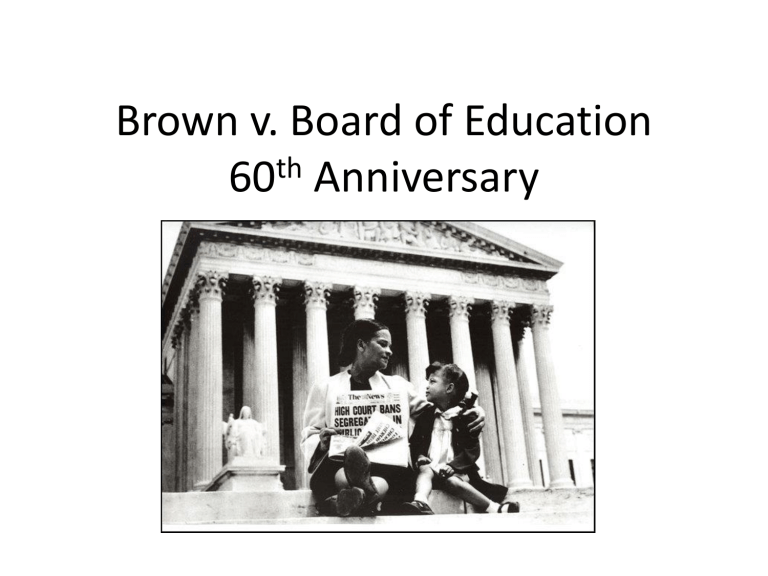
Brown v. Board of Education
60 th Anniversary
Post Civil War - Racial Tensions Still High
Voting rights were restricted through polling taxes, literacy tests, and terrorism by the KKK and others.
Example of an actual literacy test from
Alabama
Plessy v. Ferguson (1896)
• On June 7, 1892, Homer Plessy, who was considered 1/8 th
African American, tried to sit in the all-white section of the train.
• He was arrested under the
Separate Car Act.
– What do you think the Separate
Car Act stands for?
Plessy v. Ferguson (continued)
Separate services were provided according to race – this was known as separate but equal .
Plessy v. Ferguson (continued)
• Justice Harlan, dissented (disagreed with the
Court’s decision): “Our Constitution is colorblind, and neither knows nor tolerates classes among citizens. In respect of civil rights, all citizens are equal before the law.”
Jim Crow Laws
• For the next 60 years after Plessy, segregation continued under what were called “Jim Crow” laws.
• The facilities for African-Americans were not as good as those for whites.
Jim Crow Laws
African American students usually did not have enough books or equipment and were often grossly under-funded than schools for whites.
What differences do you notice between these classrooms?
Brown v. Board of Education
• The result of years of legal battles in school districts across the country
– Motivated by the bravery of children,
– Their parents,
– and a determined team of lawyers.
Daisy Bates
(Student)
Attorney
Thurgood
Marshall
Brown v. Board of Education
• Legal challenges to segregated public schools from four different states:
– Delaware, Kansas, South Carolina, and Virginia.
• Legal Argument: Separate can never be equal. Racial segregation violates the rights of equal protection, liberty, and the due process of law guaranteed by the Constitution.
Brown v. Board of Education
• The Court issued a unanimous decision in
Brown declaring that segregated schools are unequal and violate the Constitution.
• The doctrine of “separate but equal” was officially over.
• A new round of battles was about to begin.
HOW DO WE INTEGRATE OUR SCHOOLS?
Class Discussion
• What do you think the impact of the Brown v.
Board of Education decision was?
• How do you think the decision was received in communities?
• What do you think it would have felt like to go to school during this time?
Post Brown v. Board of Education
• Many see Brown as a great achievement of
American democracy and a critical moment in the Civil Rights Movement in the effort to make America a more fair and equal society.
• Other people, looking at continuing disparities in school funding, facilities, and opportunity, are frustrated with the lack of progress since
Brown.
• What do YOU think?



